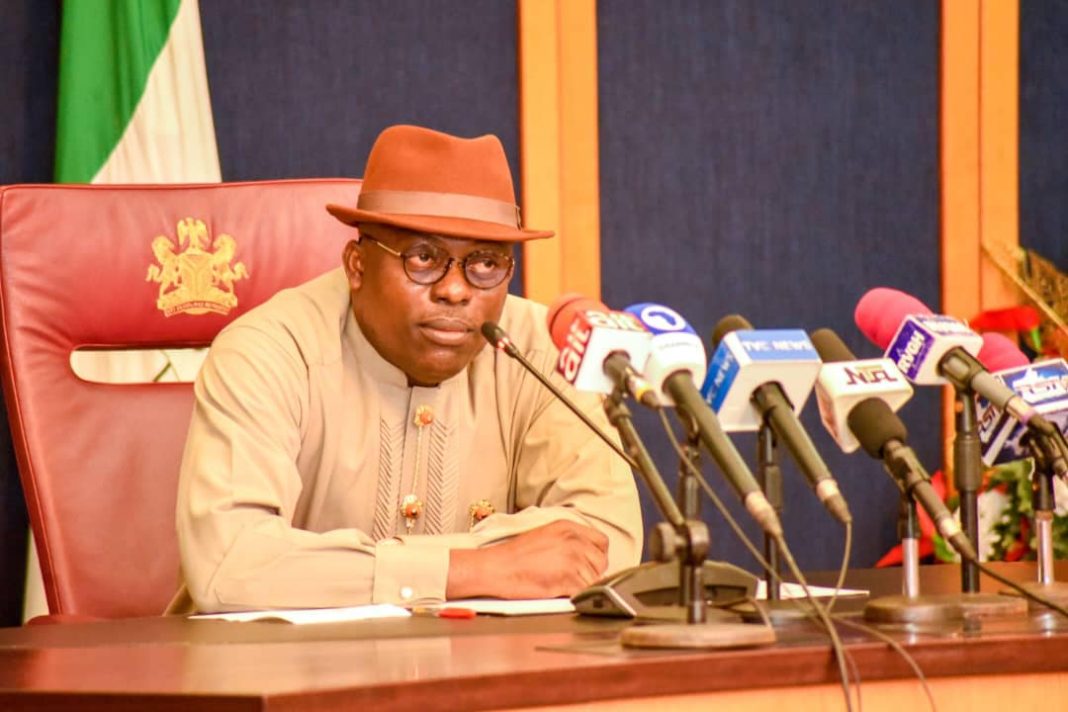ABUJA, Nigeria – In a landmark ruling, the Federal High Court in Abuja, presided over by Justice James Omotosho, nullified the contentious N800 billion budget of Rivers State, which had been passed by a faction of the State Assembly and signed into law by Governor Siminalayi Fubara.
The court’s decision on Monday, January 22, 2024, marked a significant turn in the ongoing political turmoil within the state.
The case, initiated by the Assembly and its Speaker, Martin Amaewhule, challenged the legitimacy of the budget process and sought to restrain Governor Fubara from allegedly undermining the Assembly’s autonomy.
The crux of the dispute stemmed from a power struggle within the Rivers State House of Assembly and the subsequent demolition of the Assembly Complex.
In December 2023, amid the escalating crisis, Governor Fubara presented the budget to a small group of lawmakers led by Edison Ehie, who then passed it swiftly.
This move was heavily criticized, as it took place shortly after a court barred Ehie’s rival, Amaewhule, from using the Assembly Complex, leading to the budget’s presentation at the Government House in Port Harcourt.
Ken Njemanze, representing Amaewhule, accused Governor Fubara of breaching the doctrine of separation of powers, thereby interfering with the legislative functions of the state.
The plaintiffs sought various injunctions, including the prevention of the National Assembly from assuming the functions of the Rivers Assembly and ensuring the financial independence of the legislature.
Justice Omotosho, in his ruling, addressed several points. He declared Edison Ehie’s resignation from the Assembly, rendering him incapable of suing or being sued in this context.
The judge also affirmed the court’s jurisdiction over the matter, rejecting the preliminary objection raised against it.
Significantly, Justice Omotosho clarified the distribution of legislative powers among the executive, state Assembly, and local government areas.
He noted that the National Assembly could only take over state legislative functions under specific constitutional conditions, which were not met in this case.
The removal of the Clerk of the Rivers State House of Assembly, Emeka Amadi, by the Rivers State Head of Service, was also declared null and void.
The judge emphasized that the appointment and remuneration of the Clerk and Deputy Clerk are the prerogatives of the Rivers State Speaker, subject to Assembly confirmation.
In a stern admonition, Justice Omotosho warned Governor Fubara against overstepping his authority, underscoring the importance of respecting democratic principles and the separation of powers.
He ruled that the governor and state public service staff cannot interfere with the Assembly’s affairs or withhold its due funds.
Consequently, the judge restrained the National Assembly from entertaining requests from Governor Fubara that would usurp the State Assembly’s functions.
The judge observed that the governor’s legal team had withdrawn from the case, implying an acknowledgment of the plaintiffs’ allegations.
Concluding, Justice Omotosho ruled that the budget session conducted by Ehie and a few lawmakers, as well as the subsequent signing of the budget by Governor Fubara, were null and void.
The judge ordered a halt to the demolition or construction of the Assembly building and affirmed that all legislative processes must proceed under the leadership of Speaker Amaewhule.
This ruling marks a critical juncture in the governance of Rivers State, reaffirming the judiciary’s role in upholding constitutional order amidst political upheaval.







